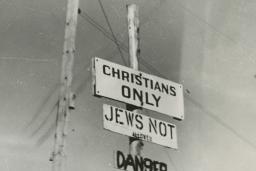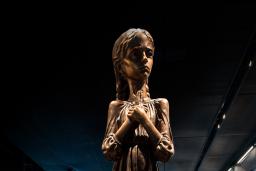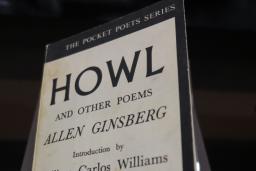Author: Jeremy Maron
he
Stories
Justice after genocide: Rwandan Canadian community activism
By Jeremy Maron
Explore how members of the Rwandan Canadian community mobilized to pursue justice, within Canada, for the 1994 genocide against the Tutsi in Rwanda.

Canada, antisemitism and the Holocaust
By Jeremy Maron
Widespread antisemitism in Canada in the 1930s and 1940s kept the nation’s borders closed to Jews trying to escape the Holocaust.

Covering the Holodomor: Memory Eternal
By Jeremy Maron
Explore the role of journalists and the media in hiding and revealing the story of the genocidal famine in Ukraine engineered by Josef Stalin.

Remembering the Srebrenica Genocide
By Jeremy Maron
Kerim Bajramovic and Aida Šehović are both Bosniaks touched by the Srebrenica Genocide in different ways. Their perspectives offer distinct personal lenses through which we can learn about Srebrenica and its legacy.

The stain of antisemitism in Canada
By Jeremy Maron
Did you know that in the not‐too‐distant past, Jewish people living in Canada were discouraged from visiting certain vacation spots or from purchasing or renting vacation properties?

What led to the genocide against the Tutsi in Rwanda?
By Jeremy Maron
Learn how division, dehumanization and incitement of hatred set the stage for genocide.

Four fundamental freedoms
By Jeremy Maron
In his January 1941 State of the Union address, American President Franklin D. Roosevelt articulated four fundamental freedoms that everyone in the world ought to be able to enjoy – freedom of speech, freedom of belief, freedom from fear and freedom from want.
